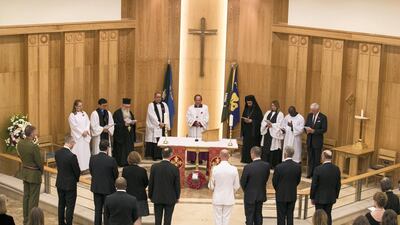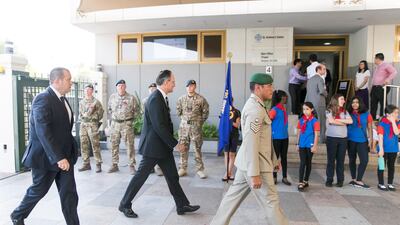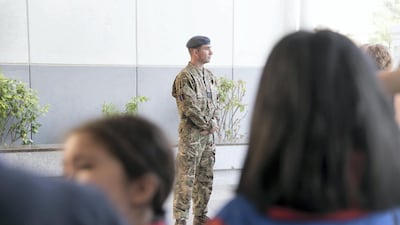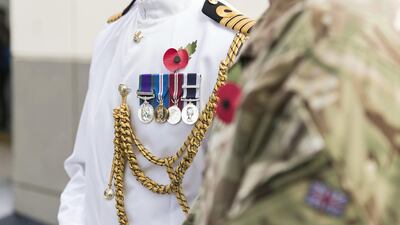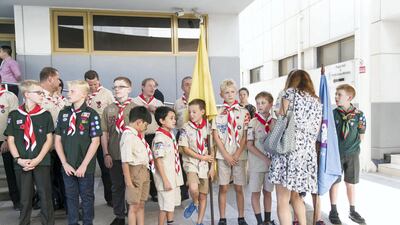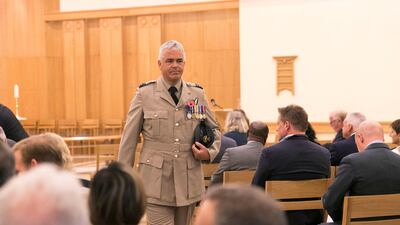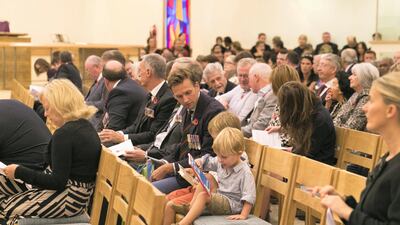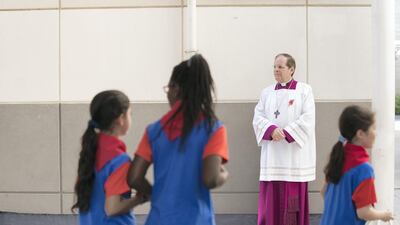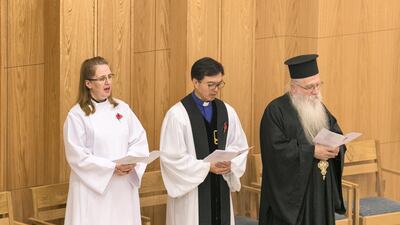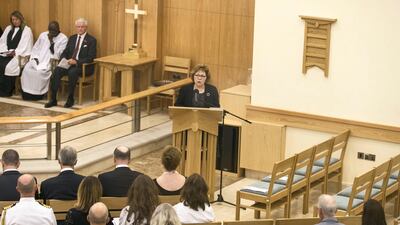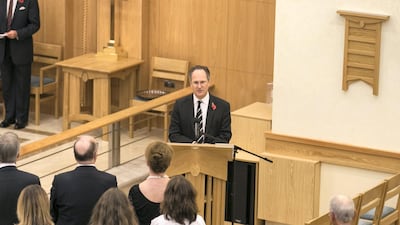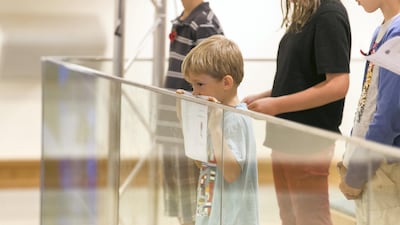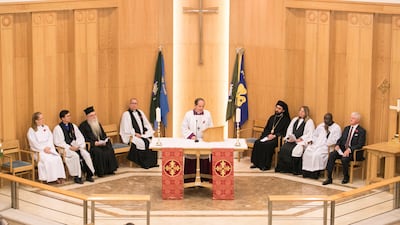A still silence filled the nave of St Andrew’s Church at 11am Saturday as officials and worshipers paused to pay tribute to members of the armed forces killed in the line of duty.
The Remembrance Day service was attended by the U.S. Ambassador to the UAE Barbara A. Leaf, British Ambassador to the UAE Philip Parham, Canadian Ambassador to the UAE Masud Husain, military officials, religious leaders and residents.
Each of the ambassadors read a Biblical passage or a poem in honour of the servicemen and women killed in battle. The British ambassador placed a poppy wreath of remembrance against the plinth of the altar.
Anglican Bishop Michael A. O. Lewis delivered the sermon, calling on parishioners to practice “imaginative solidarity” with those who have died in service.
“Of course, there are some here at St Andrew’s this morning, as there will be every Remembrance Day at this time, who have been in war, who have seen pain and have seen death close up and also fear, and also bravery and they can literally remember,” said Bishop Lewis. “But for all of us, what this day calls us to I think is what I like to term imaginative solidarity.”
The tradition has been observed by Commonwealth nations every November 11 since the end of World War I to honour those who have sacrificed their lives for their country.
“It is an inspiration for all of us to work harder for peace and stability,” said Ambassador Parham.
The passage of time since the first world war has only strengthened the meaning and role of Remembrance Day, said the British Defence Attache Captain Jim Lowther.
"It used to be more about remembering the losses of the two world wars – it still is that, of course -- but now it’s also, sadly, a very contemporary ceremony," said Captain Lowther. “It has resonance for almost every serviceman and their families and their friends. I think you will find very few of the servicemen here who haven’t had personal experience of loss."
The tradition, said Canadian Ambassador Husain, is also a reminder of the ultimate goal of any military action: peace.
“There is also a hope that you go into battles not to continue war but to end them and to get to peace. What we have seen over the years is that’s still elusive, that goal.”
Reverend Canon Andrew Thompson, chaplain of the church, said Remembrance Day should also be a reminder not to take freedom for granted.
“It’s always important to remember those who serve their country and laid their lives down in an act of sacrifice,” said Rev. Thompson. “We should never take our freedom lightly or for granted. There is always a cost for peace and they’re the ones who give it to us.”
